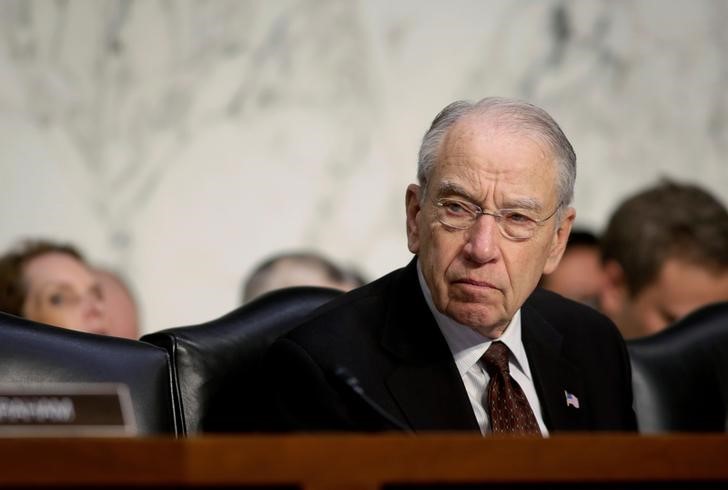By Mark Hosenball
(Reuters) - The research firm behind the so-called Trump "dossier" accused U.S. Senate Judiciary Committee Chairman Chuck Grassley on Monday of endangering its employees by ignoring "multiple" requests not to publicly disclose their names.
In a letter to Grassley, which also criticized Republican Senator Lindsey Graham, lawyers for Washington-based Fusion GPS said the firm had twice reported unspecified "threats" to the police and had tried to keep its employees' names confidential "because of well-founded concerns about their public safety."
Fusion hired former British intelligence officer Christopher Steele to compile the "dossier" that included allegations about contacts between then-presidential candidate Donald Trump's campaign, his advisers and Russia. The document has since become the focus of attacks by Trump and his supporters.
Fusion's lawyers complained that the names of Fusion employees were publicly disclosed in six letters issued last week by Grassley and Senator Graham, a judiciary subcommittee chairman, although the company's lawyers "on multiple occasions" had asked committee staff members to avoid doing so.
"Ignoring our requests, your office knowingly put these people in danger, by releasing their names to the public," the Fusion lawyers argued. "These leaks are unauthorized and unethical."
"Some of these employees are not yet 30 years old. Others have children. We also hope that nothing happens to these good people, simply because of your office's labored efforts to defend this president or please the editorial pages of the Wall Street Journal."
The lawyers for Fusion also accused Grassley's office of leaking confidential information it obtained from Fusion GPS and its founder, former Journal reporter Glenn Simpson.
A spokesman for Senator Dianne Feinstein, the top Democrat on the Judiciary Committee, did not respond to requests for comment. The offices of other senators, including Grassley and Graham, also did not respond.

But a Judiciary Committee spokesman said the letter from Fusion's attorneys contained "a number of inaccuracies that misrepresent the facts."